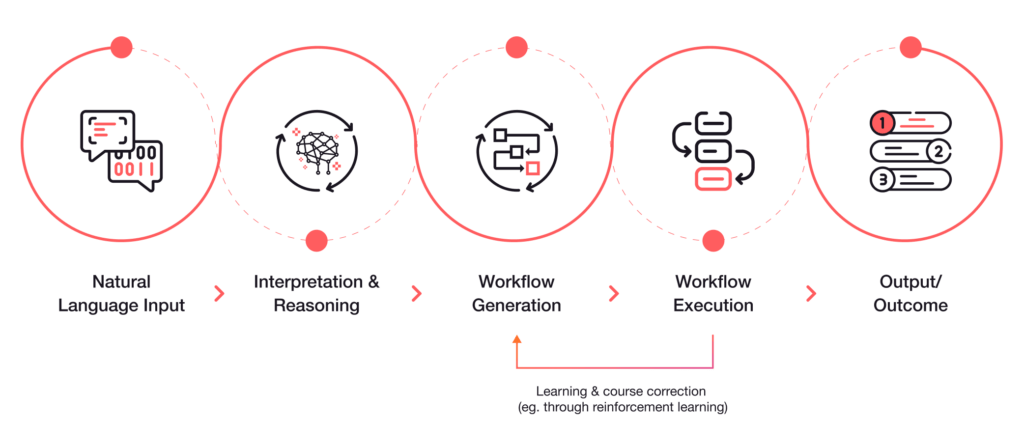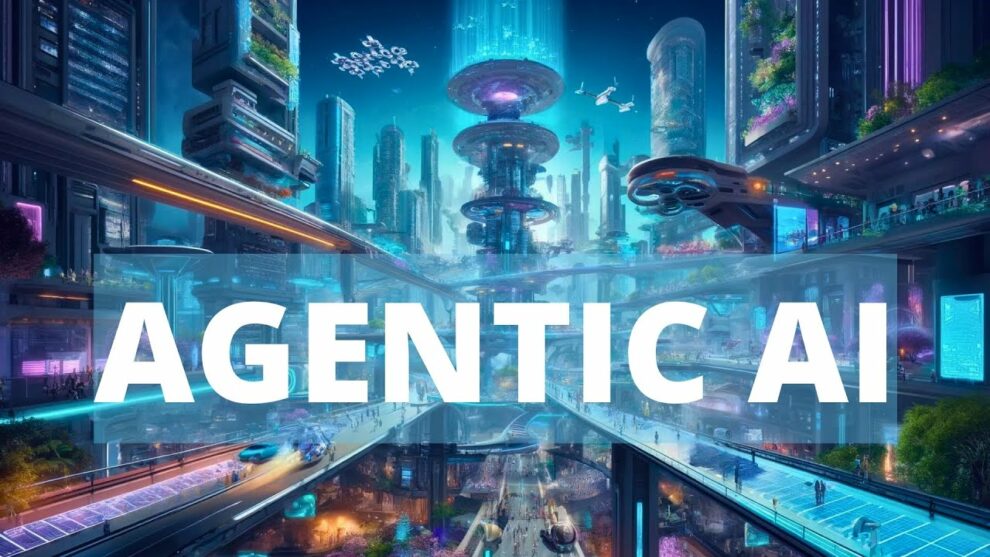The world of artificial intelligence is on the cusp of a transformative shift, as generative AI applications give way to a more sophisticated and autonomous paradigm known as agentic AI. This latest advancement in AI technology is poised to fundamentally reshape the way businesses operate, ushering in a new era of unparalleled efficiency, adaptability, and innovation.
Agentic AI, unlike its knowledge-based predecessors, is characterized by the ability to reason, set goals, and dynamically adapt its actions based on changing conditions. These autonomous agents can perform complex, multi-step workflows that were previously thought to be beyond the capabilities of machines, opening up a realm of possibilities for businesses across various industries.
With these capabilities, agentic AI could perform a whole range of tasks previously thought impossible for a machine to handle – such as identifying sales targets and making pitches, analyzing and optimizing supply chains, or acting as personal assistants to manage employees’ time,” the article explains.
The recent partnership between Amazon and Adept, a specialist in agentic AI, is a clear signal of the growing recognition of this technology’s potential to automate diverse, high-complexity use cases across business functions. However, to fully leverage the power of agentic AI, organizations must first address several challenges related to the underlying data infrastructure.
The article outlines the three core components that enable agentic AI to function successfully: a plan to work from, large language models (LLMs), and access to robust memory systems.
“A plan allows the agent to execute complex, multi-step tasks. For instance, handling a customer complaint might involve a predefined plan to verify identity, gather details, provide solutions, and confirm resolution,” the article explains. “To follow this plan, an AI agent can use multiple LLMs to break down problems and perform subtasks.”
Furthermore, the ability to access and utilize both short-term and long-term memory is crucial for agentic AI to make informed decisions and build a comprehensive understanding of context. This is where many businesses currently fall short, as their data architectures are often not advanced enough to support the memory requirements of these autonomous agents.
“Both short term and long-term memory is needed for tasks requiring immediate attention, and to build an understanding of context that the AI can rely on for future inferences. But here lies one of the major barriers preventing optimization of agentic AI today: often, businesses’ databases aren’t advanced enough to support these memory systems, limiting the AI’s potential to deliver accurate and personalized insights,” the article states.
The article delves deeper into the limitations of the predominant approach of using a complex web of standalone database management systems, which can lead to issues such as latency, data silos, and inconsistent data. These challenges can ultimately hinder the performance and effectiveness of agentic AI systems.
“Latency issues arise when each of the different databases used have varying response times, causing delays that can disrupt AI operations. In addition, data silos, where information is isolated in separate databases, prevent the AI from having a unified view and hinder comprehensive analysis, leading to the agent missing connections and providing incomplete results,” the article explains.
To unlock the full potential of agentic AI, businesses must prioritize the development of unified data platforms that can efficiently manage structured and unstructured data, reduce latency, and scale on demand. This shift in data architecture will be crucial in building cohesive, interoperable, and resilient memory infrastructures that can support the advanced capabilities of autonomous agents.
As agentic AI continues to evolve, the article emphasizes the profound implications this technology will have on the way businesses operate. These autonomous agents, capable of thinking and learning like humans but with unprecedented efficiency and adaptability, will fundamentally change the way humans interact with technology.
“Agentic AI opens the door to a new era where AI agents act as collaborators and innovators, fundamentally changing how humans interact with technology,” the article concludes. “Once businesses have overcome the challenges associated with disparate data sources and optimized memory systems, they will unlock widespread use of tools that can think and learn like humans, with unprecedented levels of efficiency, insight, and automation.”
The transition to agentic AI represents a pivotal moment for businesses, as they must be prepared to embrace this technological revolution and position themselves for the transformative changes it will bring to their operations and the broader business landscape.
















Add Comment